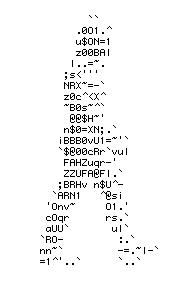Why can't a newspaper be more like a blog - by Barry Parr
Barry Parr hat auf seinem Weblog den letzten Teil seiner Serie: "Why can't a newspaper be more like a blog?" veröffentlicht:
Perhaps newspapers will never understand the Web.
We're approaching the ten-year anniversary of newspapers on the Web -- Mercury Center (my site) and SFGate launched at the end of 1994. Our vision of the Web has changed a couple of times in the last decade, but newspapers vision of their online edition remain unchanged.
Right now, we're in the middle of a bottom-up revolution in how the Web is created and how people use it. OK, all real revolutions are bottom-up. That's how you know it's in a revolution.
Right now, Technorati is indexing 2.5 million blogs. Most of those are inactive, and most of the rest suck. But there is a huge, unmanageable number of sites remaining that are changing the way that people use the web. And the tools they use to create their sites and reach their audiences are steadily improving.
The title of this piece is deliberately provocative. I don't expect newspapers to mimic blogs. But I don't understand why they haven't learned some broader lessons about how our use of the Web has changed in the ten years since we first went online.
Und weiter:
Publishers don't understand that the home page is no longer the gateway to their site. Every well-designed page has enough navigation and headlines to draw you into the site.
Publishers don't trust their newsrooms to deliver headlines that will bring you to their site because you have to read the story.
Publishers are anxious because they can no longer get you to pay to have them deliver a package on your doorstep that you feel compelled to read because you paid for it and because you'd feel guilty to toss it out unread.
Publishers want you to read their sites because it's a habit and not because they're producing must-read journalism.
[Quelle: http://mediasavvy.com ]
Hier gibt's die einzelnen Teile zum Nachlesen:
* RSS feeds put your headlines on readers' desktops
* Comments let your reader participate directly in the reporting process
* Archives should no longer be in a separate database
* Trackback points to people who point to you
* Your community should be the focus of your site
Perhaps newspapers will never understand the Web.
We're approaching the ten-year anniversary of newspapers on the Web -- Mercury Center (my site) and SFGate launched at the end of 1994. Our vision of the Web has changed a couple of times in the last decade, but newspapers vision of their online edition remain unchanged.
Right now, we're in the middle of a bottom-up revolution in how the Web is created and how people use it. OK, all real revolutions are bottom-up. That's how you know it's in a revolution.
Right now, Technorati is indexing 2.5 million blogs. Most of those are inactive, and most of the rest suck. But there is a huge, unmanageable number of sites remaining that are changing the way that people use the web. And the tools they use to create their sites and reach their audiences are steadily improving.
The title of this piece is deliberately provocative. I don't expect newspapers to mimic blogs. But I don't understand why they haven't learned some broader lessons about how our use of the Web has changed in the ten years since we first went online.
Und weiter:
Publishers don't understand that the home page is no longer the gateway to their site. Every well-designed page has enough navigation and headlines to draw you into the site.
Publishers don't trust their newsrooms to deliver headlines that will bring you to their site because you have to read the story.
Publishers are anxious because they can no longer get you to pay to have them deliver a package on your doorstep that you feel compelled to read because you paid for it and because you'd feel guilty to toss it out unread.
Publishers want you to read their sites because it's a habit and not because they're producing must-read journalism.
[Quelle: http://mediasavvy.com ]
Hier gibt's die einzelnen Teile zum Nachlesen:
* RSS feeds put your headlines on readers' desktops
* Comments let your reader participate directly in the reporting process
* Archives should no longer be in a separate database
* Trackback points to people who point to you
* Your community should be the focus of your site
Cyberwriter - 19. Jun, 11:40 - Blogging
0 Kommentare - Kommentar verfassen - 0 Trackbacks




















